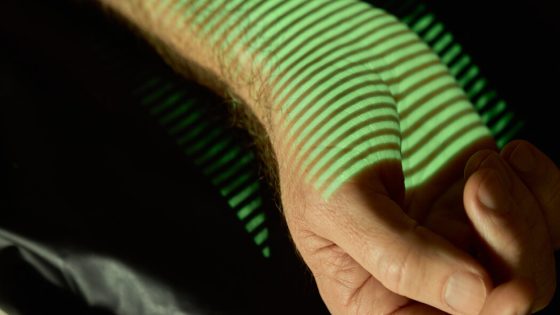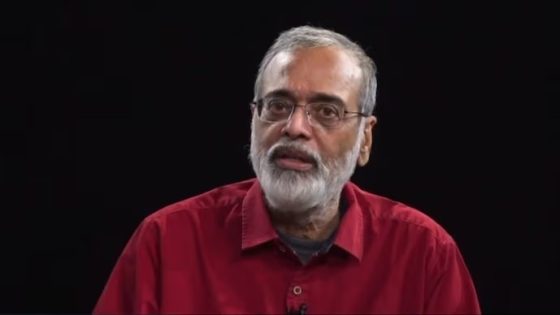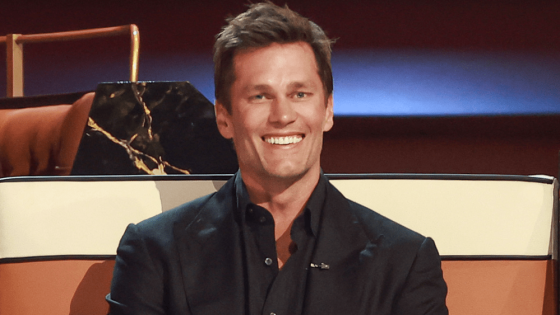In conversations with colleagues, fellow entrepreneurs and even musicians over the past decade, Daniel Ek would often abruptly shift the subject to something that really bugged him: health care. “I was like adamant to fix it,” Mr. Ek, the Spotify chief, told DealBook. He saw the industry as a bloated and inefficient colossus in need of disrupting.
The problem: Mr. Ek had neither a plan, nor the time or money to do much about it. He was busy taking on Apple, YouTube and Amazon Music in the streaming wars. In his spare time, Mr. Ek pored over medical journals. And he routinely measured his vital statistics with a Fitbit, an Apple Watch or Wii Fit tracker — the more data, the better to see how his body held up against the rigors of running a business. He thought that such tracking might hold some clue to living longer and healthier. “I was just toying around with ideas in health care,” he added.
That all changed in 2018. Spotify went public, making Mr. Ek a billionaire. It was time to turn his side focus into his next venture, he decided. He knew whom to contact: Hjalmar Nilsonne, a Swedish tech entrepreneur who Mr. Ek had met the year prior at the Brilliant Minds event, an annual gathering Mr. Ek started. Mr. Nilsonne was passionate about upending the status quo, too. At the time, he was focused on climate change and his start-up, Watty, which aimed to strip waste out of the energy grid.
At first, Mr. Nilsonne rebuffed Mr. Ek’s proposition. But Mr. Ek eventually won him over. (It helped that Watty was running out of money, and it was eventually sold to a German company.) Mr. Ek, a former computer coder, and Mr. Nilsonne, an engineer, zeroed in on building a better diagnostic tool. Their aim: disease prevention, and prolonging life. The company they founded, Neko Health, opened its doors in Stockholm last year, and it is set to open in London, its second market, this summer.
Longevity has become a kind of obsession with tech moguls. Sam Altman, Peter Thiel and Mr. Ek are among those who believe bright ideas, the right tech and bundles of capital can help humans live longer. Mr. Ek, 41, has invested millions personally and through his investment firm, Prima Materia, in such start-ups around Europe. Neko Health is the only one for which he’s taken the title of founder.
The company says its full-body scans can detect the onset of a host of cardiovascular and metabolic diseases, as well as skin conditions. It calls its scans, which cost about $230, or 2,500 Swedish krona, “a health check for your future self.”
Whole-body scans have been around for a while. But they have taken off in recent years thanks to artificial intelligence and social media. Kim Kardashian helped put one buzzy rival, Prenuvo, on the map last summer when she referred to its M.R.I. scanner as a “life saving machine” in an Instagram post. Another, the New York-based Ezra, announced in February that it had raised $21 million to help it expand to 20 North American cities by year-end.
Despite the boom in interest, medical professionals say proactive screening technologies have yet to prove that they can achieve better outcomes for patient health or longevity. And the verdict is still out on the business model.
“I would be super happy if this turned out to make me no money, but we actually solved real issues in the world for real people,” Mr. Ek told DealBook in his first English-language interview about Neko Health.
He compared the challenge to the streaming wars. When Spotify debuted in 2008, the music industry was being ravaged by piracy and plummeting revenues. “Everyone told me, this is a horrible business. Please don’t do that,” he recalled.
Mr. Ek acknowledged that taking on health care may be even tougher. Like Spotify, Neko Health has big growth ambitions, but it faces a long slog in getting the green light to enter new markets. And in some ways, the Neko founders’ vision is more ambitious than their competitors. Their goal is to make early diagnosis of diseases affordable, so that full-body scans become as routine as an annual checkup. That could help reverse a depressing pattern where gains in life expectancy have slowed in many wealthy countries over the past decade, despite ballooning health care spending. “Almost every trend is going in the wrong direction,” said Mr. Nilsonne, 37, who is also Neko Health’s chief executive.
Inside a Neko Health Scanner
There are about as many approaches to body health scans as there are companies offering them. Most involve repackaging some pre-existing medical technology and adding proprietary software. Prenuvo, the startup that Ms. Kardashian promoted on Instagram, was founded by the entrepreneur Andrew Lacy, and its backers include Eric Schmidt, the former Google chief executive, and the supermodel Cindy Crawford. It sells hourlong magnetic resonance imaging sessions for $2,499, and then uses an A.I.-powered software to examine the scanned images for warning signs of cancer, aneurysms and liver diseases. Ezra hopes to squish the full-body scan down to 15 minutes, and charge $500.
Neko Health, with its smaller price tag, doesn’t perform M.R.I.s or X-rays. Instead, it uses about 70 different sensors and a mix of proprietary and off-the-shelf technologies to non-invasively measure heart function and circulation, and to photograph every inch of a patient’s body.
“The visual metaphor early on was around the airport scanner,” said Mr. Ek.
At a Neko Health clinic in Stockholm where I recently paid for a scan, I understood the comparison. After being handed slippers and a thin cloth robe, I entered a room with a floor-to-ceiling scan chamber that looked straight out of “Star Trek.” Soothing instrumental music added to a spalike setting.
I stepped inside the contraption and was instructed to raise my arms out to my side. The circular door slid shut, and a voice recording — a female with a soft English accent — told me to shut my eyes, take a deep breath and prepare for a blast of bright light. A series of wall-mounted cameras flashed. The entire scan, which took over 2,000 high-resolution images of my body, mapping and indexing my every blemish, lasted about 20 seconds.
Outside of the chamber, the second part of the examination commenced. It involved a blood draw, as well as tests for grip-strength, eye-pressure, and blood pressure. At one point, a device spying out of a grate in the ceiling measured my heart rate using a laser sensor. When a green light honed in on my outstretched arm, a live magnified image of my forearm showing the blood pulsing through my arteries appeared on a monitor on a nearby wall. (The illuminated patch of skin was being measured for blood flow and arterial stiffness, an indicator for cardiovascular health).
Most Neko patients have passed the scan with a clean bill of health. But, in a recent sample of 2,707 patients, life-threatening issues were found in about 1 percent of the cases, according to the company. (About one-quarter of those were under age 50). And for 9 percent of that cohort, previously undiagnosed issues were found that were later determined to be ailments such as heart disease, skin cancer and diabetes.
Dr. Andreea Valdman, Neko Health’s lead general practitioner, walked me through my results at the end of my exam. All of the 400 suspicious looking blotches and moles on my body that had been mapped with the help of A.I. were benign, Neko’s dermatologists confirmed.
Type 2 diabetes runs in my family. And, my father had his first stroke at 54, so the anticipation around my blood-glucose reading — HbA1c — had me on edge. The verdict: no risk of diabetes or stroke.
It felt reassuring to know I was doing something right, and what I needed to work on.
The company said the waiting list in Sweden has swelled to 20,000.
‘Bend the cost curve’
In the United States, most major health insurers don’t typically cover such scans. And some in the medical field question their effectiveness. “To date, there is no documented evidence that total body screening is cost-efficient or effective in prolonging life,” the American College of Radiology said last year. One issue is false positives, Dr. Nils-Eric Sahlin, a professor of medical ethics at Lund University in Sweden, told DealBook. He said that could lead to a wave of healthy people seeking a second opinion, potentially overwhelming the most stressed parts of the health care system, and adding costs for potentially unnecessary follow-up treatment.
Mr. Nilsonne pushed back on these criticisms, calling the status-quo health care model in which a patient often receives treatment well after the disease has progressed bad public policy. Preventative health care, he said, should bring with it a new data stream: from healthy people. That will inform smarter policy, he argued.
“We need to bend the cost curve on health care,” Mr. Nilsonne said. “The cheapest dollar to spend on health is not when you’re super sick; it’s to help you not get sick in the first place.”
Investors see potential. Venture capitalists invested a record $4.7 billion in longevity start-ups in 2022, according to Pitchbook. But in the wake of Theranos, Elizabeth Holmes’s failed blood-testing startup that promised to usher in “a new era of preventative health,” scrutiny is also sky high. “Blowouts” like Theranos, Mr. Ek said, risk undermining the public “trust in all of the subsequent companies that are coming.”
Last summer, thanks in part to Mr. Ek’s connections, Neko raised 60 million euros ($65 million) from investors that include Atomico, General Catalyst, and Lakestar. Mr. Ek has pitched in an additional €30 million. But the capital requirements for a brick-and-mortar expansion of health clinics are unlike the economics of unveiling an app like Spotify. The regulatory hurdles are arduous, too. “Hundreds, if not thousands, of documents need to be submitted,” Mr. Nilsonne noted.
The start-up says it will be on pace to deliver roughly 50,000 scans by the end of the year. When pressed, Mr. Ek didn’t want to talk five- or seven-year growth targets, or return on his investment. Instead, he focused on the technology. “You can actually save lives with this,” he said, adding, “and we have.”
Source Agencies



